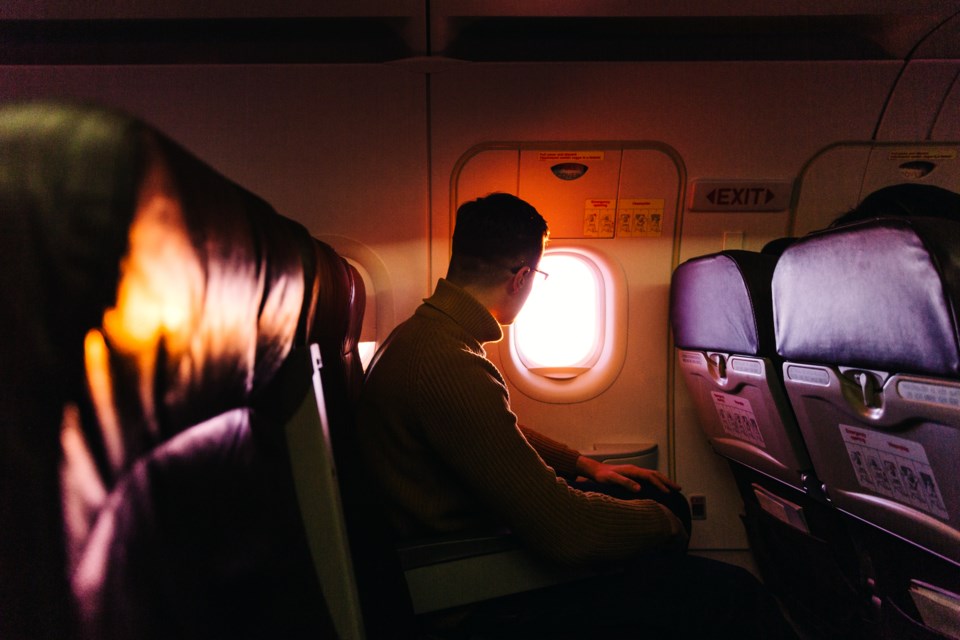Leonardo da Vinci said it best: “Once you have tasted flight, you will forever walk the Earth with your eyes turned skyward, for there you have been, and there you will always long to return.” Even in the 15th century, people were being turned on by the possibility of flight. We’ve come a long, long way since then.
It's no secret that airplanes have revolutionized the way we see the world. About 4.5 billion passengers , according to the International Air Transport Association (IATA), with a huge dip in 2020 because of the COVID-19 pandemic. With travellers once more jet-setting, numbers are beginning as vaccines become widespread and countries welcome visitors once more. Likewise, people were obtaining passports at until the pandemic slowed numbers. But while air travel may be one of the most efficient ways to travel on the outside, inside the effects are wreaking havoc on our bodies.
From inner-ear stress and mood swings to sensory deprivation, and even some situations as risky as death itself, you may not understand what you're putting your body through every time you step on an airplane. Think about it. You're cruising at 35,000 feet in the air in a steel tube at an average rate of 500 miles per hour, with 300 of your closest friends. Nothing about it is natural. And while many preventative and security measures have been honed and perfected over the years to keep us all safe in the skies, nothing is truly perfect.
Stacker used the Centers for Disease Control and Prevention (CDC) issued June 2020 to compile 15 facts about how air travel can impact health. Supplemental information was gathered from research conducted by health organizations, research centers, and news reports.
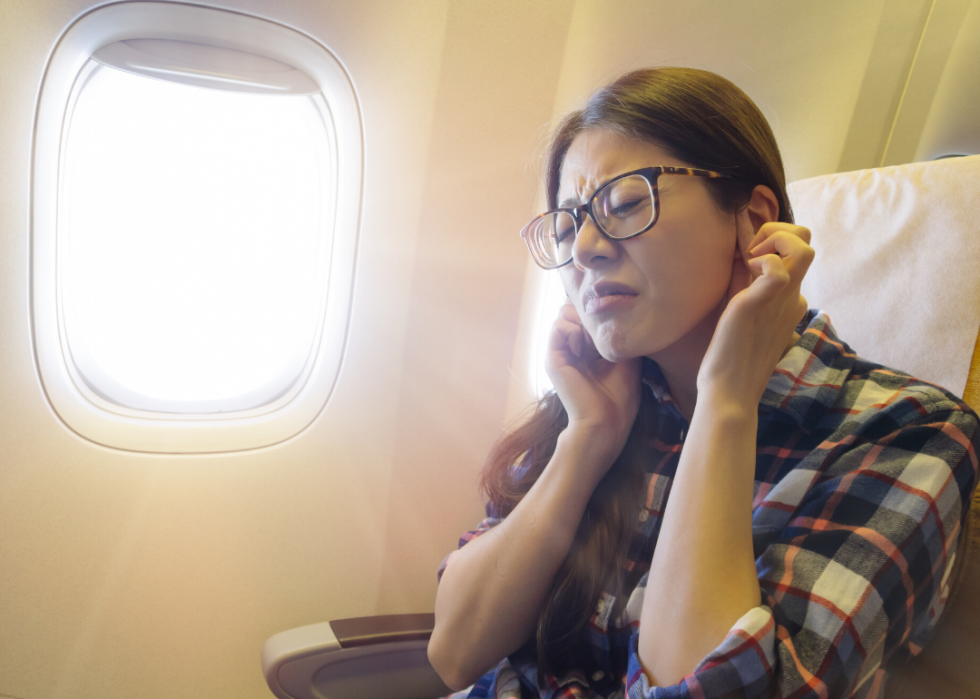
It stresses your ears
While that metal tube zipping through the air is pressurized, cabin air pressure at cruising altitude is lower than air pressure at sea level.
According to the , at typical cruising altitudes (between 36,000 and 40,000 feet), air pressure in the cabin is equal to what the outside air pressure would be at 6,000–8,000 feet. When this happens, something called can occur, which is when the pressure inside an air-filled body space like your ear, sinuses, or stomach is not in balance with the air pressure inside the cabin. It's that familiar feeling when your ears pop.
Your Eustachian tube is blocked and cannot equalize the air pressure between the two spaces. While it's pretty uncomfortable, it's not dangerous and can usually be prevented or treated. Swallowing or yawning are two ways to treat it. If you have an ear, nose, or sinus infection, take a decongestant before takeoff to avoid a higher level of discomfort.
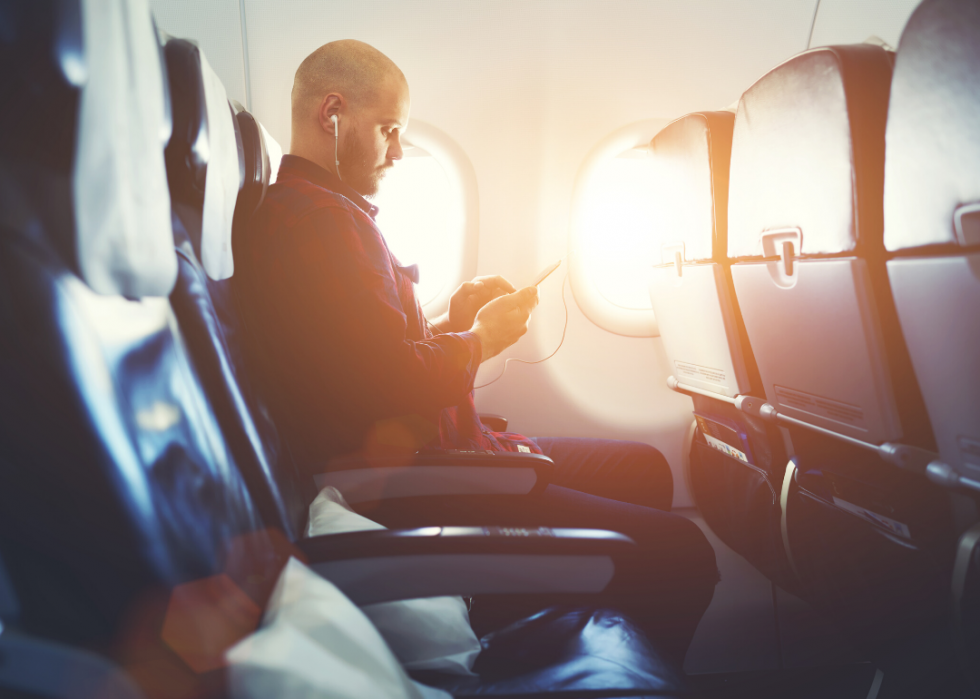
It causes swelling in the legs... or worse
Here's one thing about air travel: It's a lot of sitting. There's no way around that. But while you're sitting, you may actually do some damage to your body. Blood clots can form in the deep veins (those veins that are not visible through the skin) of your legs because you're sitting still in such a cramped space for a long time.
The longer you sit still, the greater the risk of developing a blood clot, also known as Deep Vein Thrombosis (DVT). According to the , much of the time, the blood clot dissolves on its own, but “a serious health problem can occur when a part of the blood clot breaks off and travels to the lungs causing a blockage. This is called a pulmonary embolism, and it may be fatal.”
Before you panic, there are ways to reduce the risk.
First, move your legs frequently and walk around every few hours. Second, learn to recognize the symptoms, like swelling of your leg or arm, pain or tenderness, warm skin, or redness of the skin. Keep in mind, there are people who run a greater risk, namely those who take birth control, pregnant women, a history of blood clotting in the family, limited mobility, those with varicose veins, active cancer, and smoking.
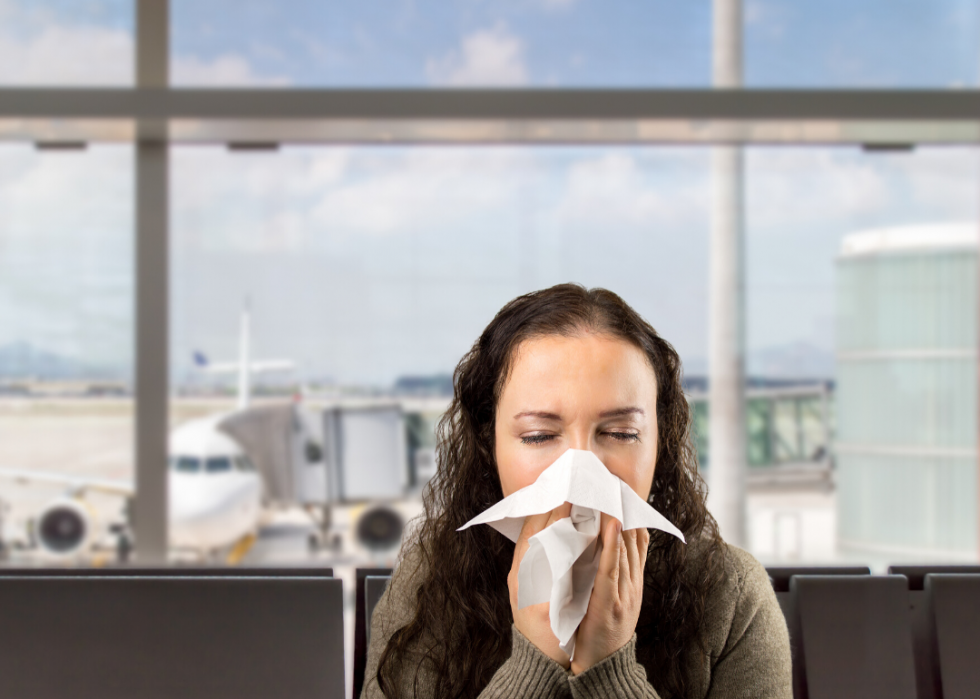
It leaves you susceptible to communicable diseases
You may be familiar with the stigma of recycled air in plane travel. Many people shudder to think of sharing air with 300 strangers in a cramped space. But contrary to popular belief, in spreading diseases on an aircraft, the .
Modern-day aircrafts circulate the air through filters 20–30 times per hour. New airplanes are equipped with HEPA filters (high-efficiency particulate air filters), which capture 99.9% of particles. The real danger comes from contact, like when the infected particles touch your face, nose, eyes, or surfaces like tray tables and door handles. How do you protect yourself? Wash your hands, cover your mouth, and bring sanitizing wipes to clean your area.
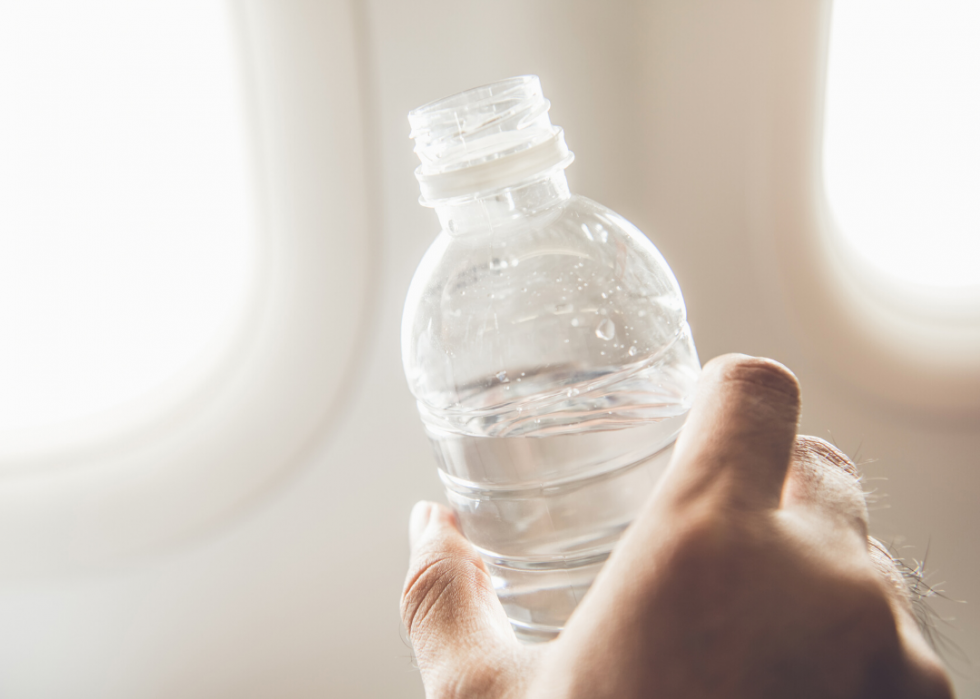
It dehydrates you
Humidity levels on airplanes are very low. The says about 50% of the air circulating in the cabin is pulled in from the outside. At such high altitudes, there is barely any moisture in the air, which means your body will start feeling pretty dry, and fast.
If you've had anything alcoholic to drink the night before, or during the flight, you may feel those effects hit harder than normal. Air travel is very dehydrating. But you can combat this easily enough: . You can also bring moisturizer for your face and hands to keep your skin hydrated. If you can skip it, save the alcoholic beverage for when you get to your destination, as well.
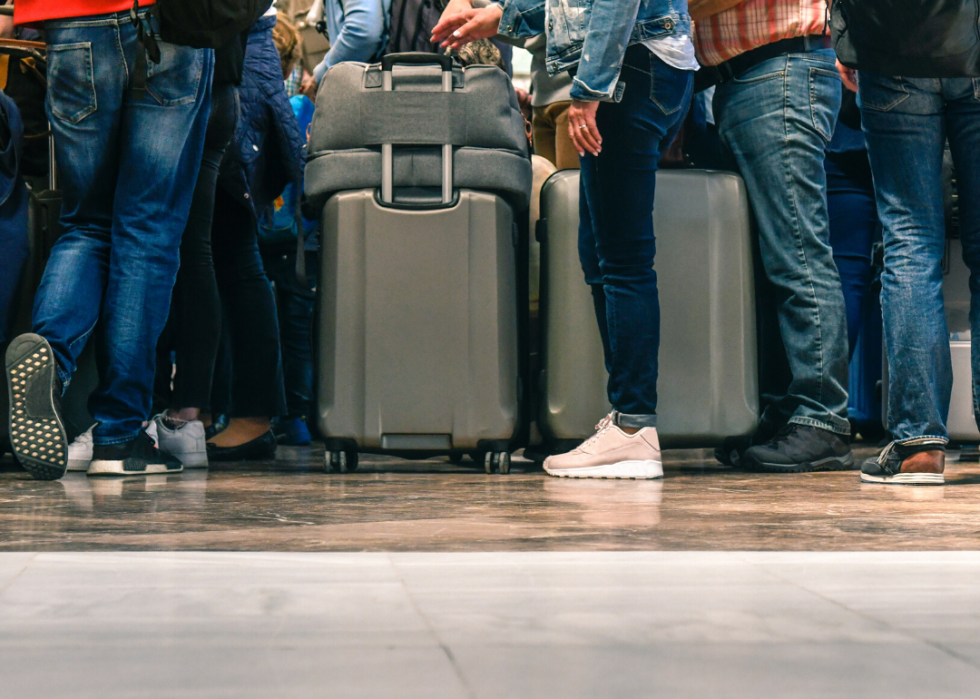
It increases your stress levels
Unless you're one of those lucky travellers with Double Platinum Mega Status, unlimited upgrades, and lounge access all over the world, travel can be stressful.
From pre-flight stress like running through a crowded airport with all of your luggage, in-flight stress including turbulence, temperature extremes, and fatigue, to post-flight stress from jet lag or other pre-existing medical complications, .
The deficiency of oxygen in the air, called hypoxia, can also affect our stress levels. , and for those who are already nervous about flying, the whole experience becomes even more unpleasant.
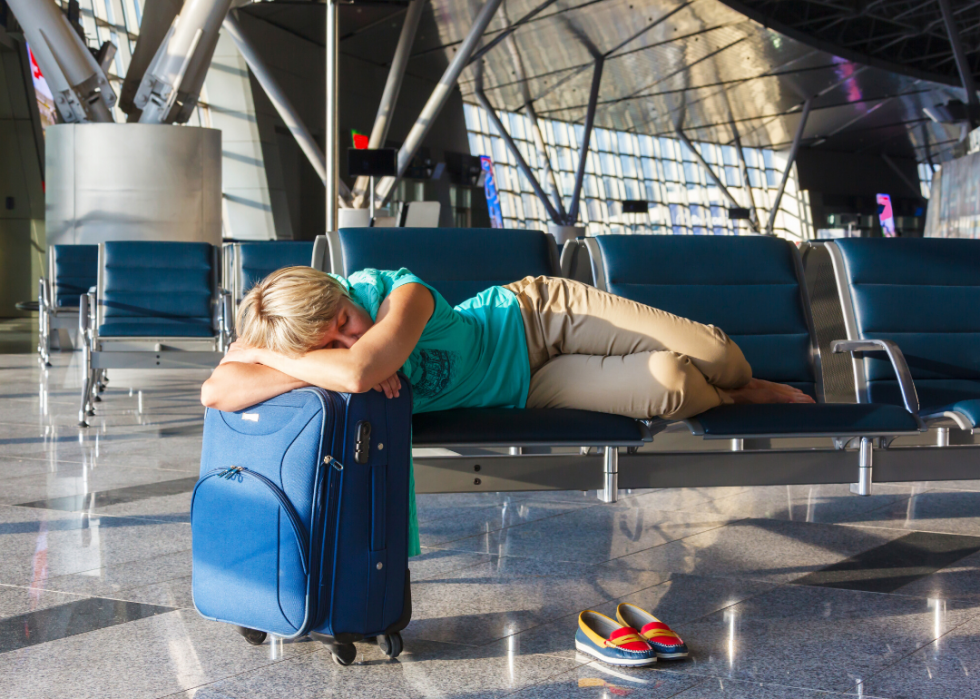
It zaps your energy
Hypoxia can make you tired as well. When climbing to high altitudes, blood oxygenation decreases, which . While the cabin is regulated to an extent, it is still possible to feel the effects. But there's another reason : It is exhausting.
Sleep deprivation is very real, especially on long-haul flights or depending on what time of day you have to wake to make your flight. The side effects can show up with both mental and physiological side effects. Fortunately, you can combat these symptoms with some basic healthy habits, like trying a natural sleep aid like melatonin, using essential oils to calm your nerves and wake up your mind, packing healthy snacks, and staying hydrated.
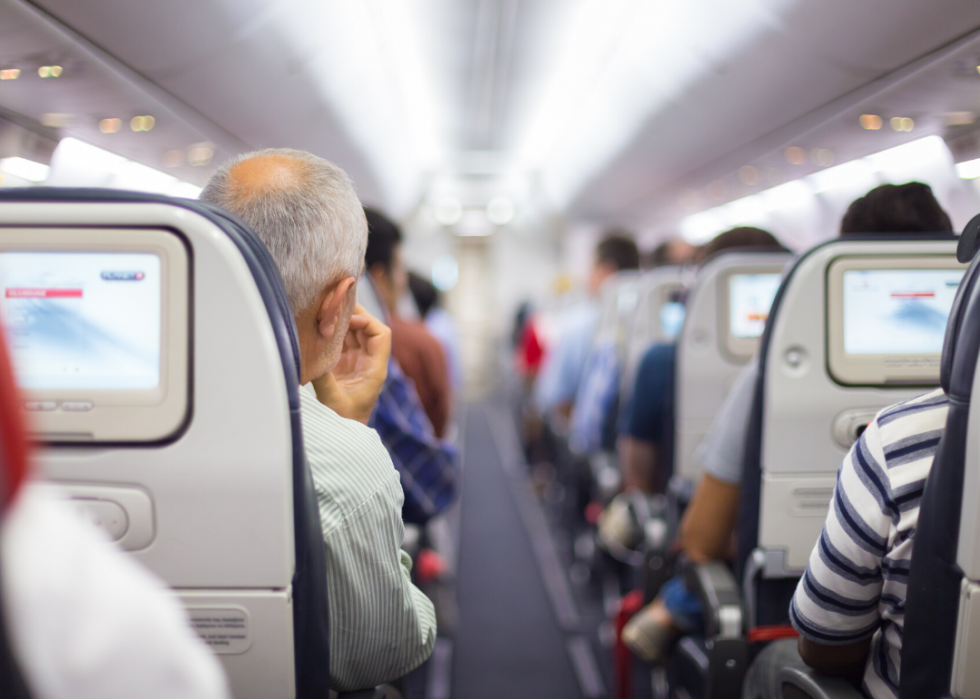
It makes you feel bloated
If you've ever felt particularly gassy or doughy on a plane, you are not alone. The buildup of excess gas is one of the more uncomfortable side effects from air travel. It makes sense: when altitude increases, pressure decreases.
Have you ever noticed that your plastic water bottle shape-shifts throughout the flight? Well, the same thing is happening to your intestines. According to the , the air expands into extra space when the pressure drops, which can lead to discomfort and bloating.
Fortunately, there are ways to help. As with most other airplane-related maladies, drinking water and moving around are two sure-fire ways to reduce the stress on your body. You can also avoid salty and fatty foods. Oh, and don't forget to release the gas, too. Holding it in will definitely make it worse.
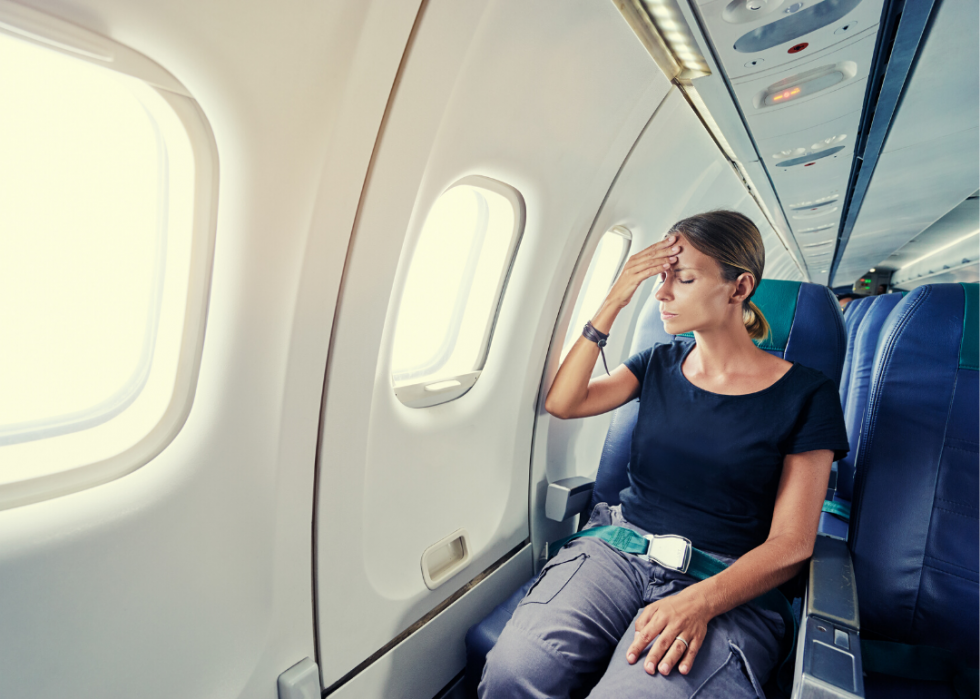
It can make you emotional
Before you curse the wailing baby a few rows ahead, remember that even adults are prone to becoming more emotional on planes. In fact, flying can be so emotionally stressful that more and more adults report that they cry easier than usual when in the air.
According to , there are a few reasons why. The stresses of travel do more to our minds than we may realize. There is the anxiety of travel, whether it's the purpose for travel itself or the entire experience. And then there are the physical reasons: flying isn't comfortable.
We have to pay for everything. We have little to no personal space. And we're dealing with all of this at a maintained cabin pressure that is much higher than most of us live and function on a day-to-day basis. To put it simply, we feel weird when we fly, and the body's response is to let it out.
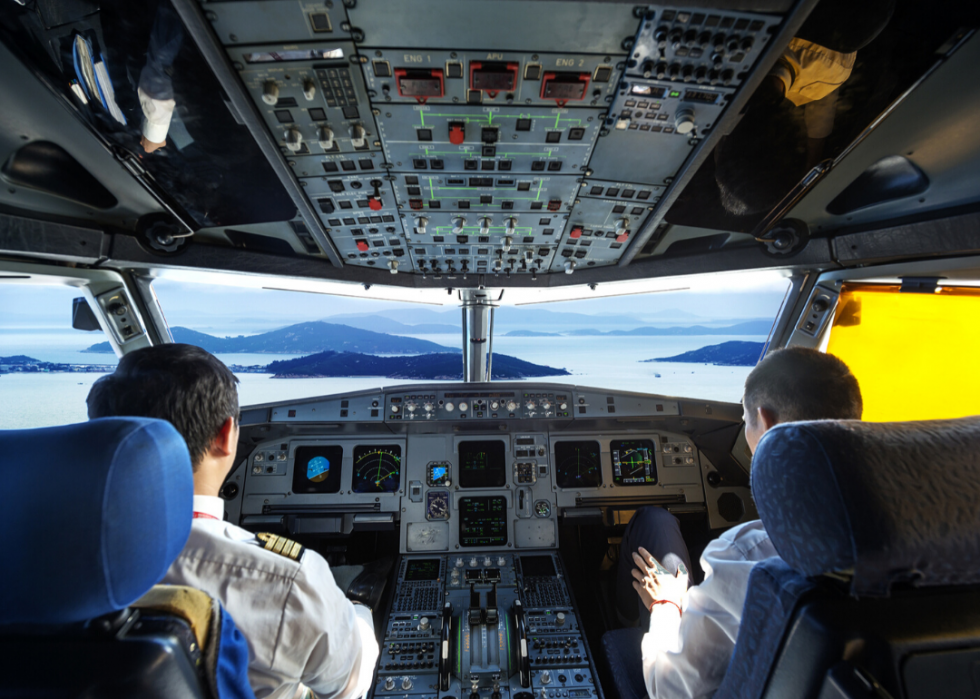
It impairs your decision-making abilities
Some studies show that even mild levels of hypoxia can affect the way we think. In fact, oxygen levels equal to altitudes of 12,000 feet or higher can affect memory and .
can be found at oxygen levels within a regulated cabin (8,000 feet). While most of us wouldn't even notice, someone with an illness or pre-existing problem may exhibit cognitive deficits.
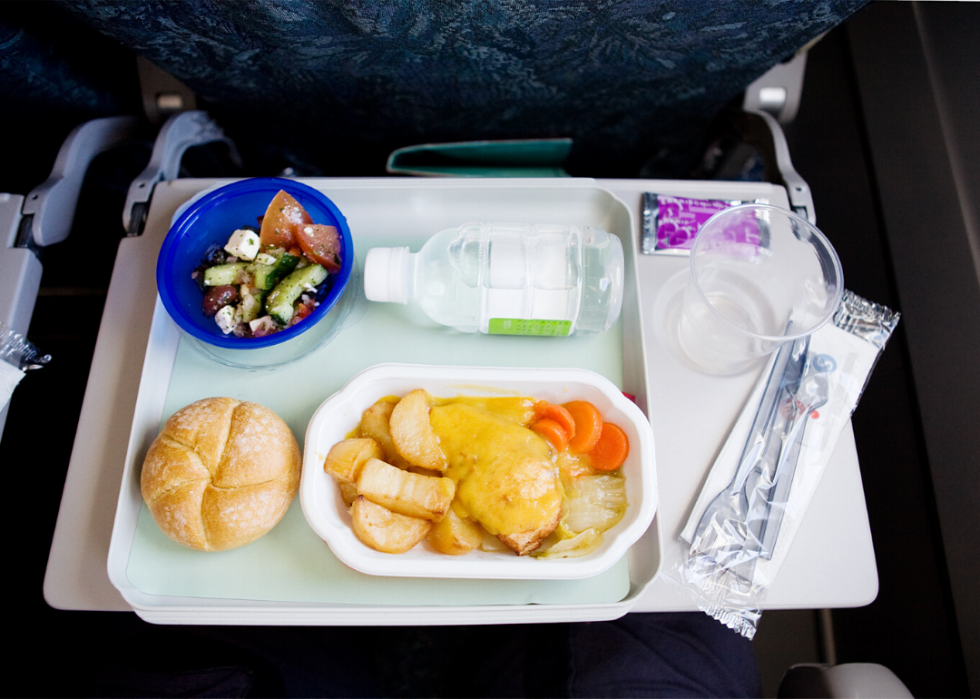
It alters your taste buds
Has it ever seemed weird to you that people are sucking back tomato juice on airplanes? Believe it or not, there's a reason. Air travel has quite an effect on your body chemistry, particularly your taste buds and certain .
Cabin air also decreases your ability to smell, and so much of taste is dependent on smell. Our taste bud sensitivity can be reduced by . So why tomato juice? that shows people crave savoruy and salty foods. In fact, according to the study, people drink as much tomato juice on flights as they do beer.
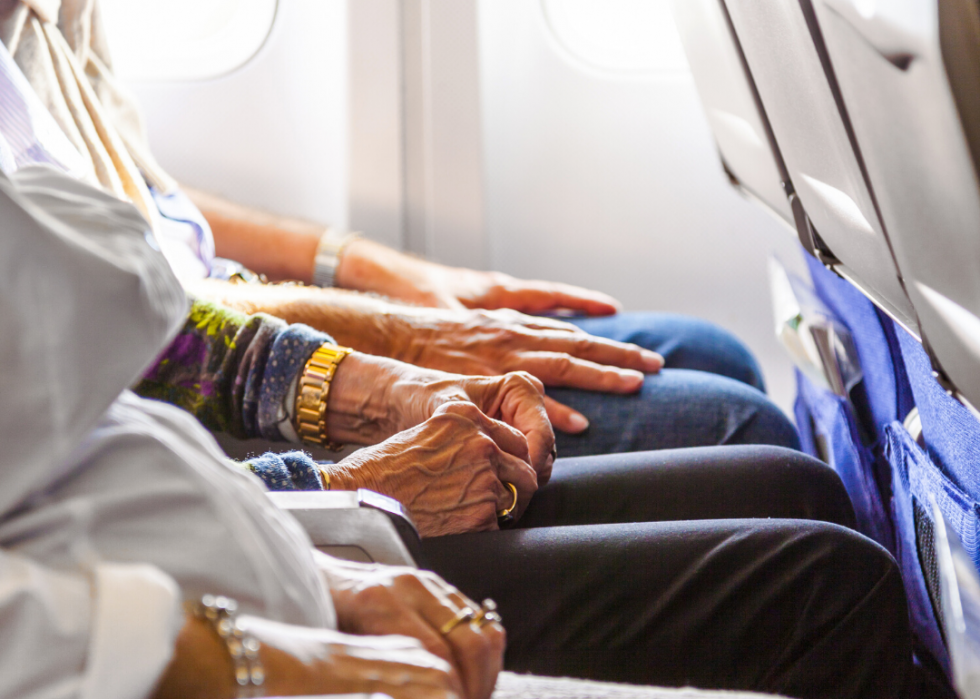
It can induce medical emergencies
As the number of older passengers increases on flights, so do the number of medical emergencies on airplanes. These occur every 1 in 600 flights, according to the , or about 16 medical emergencies per 1 million passengers.
The most common ones are a temporary loss of consciousness due to insufficient blood flow to the brain (syncope); respiratory symptoms; nausea or vomiting, cardiac symptoms; and seizures. Flight attendants are trained in basic first aid and CPR, as well as the use of AED machines, but for emergency medical response, additional help is often needed.
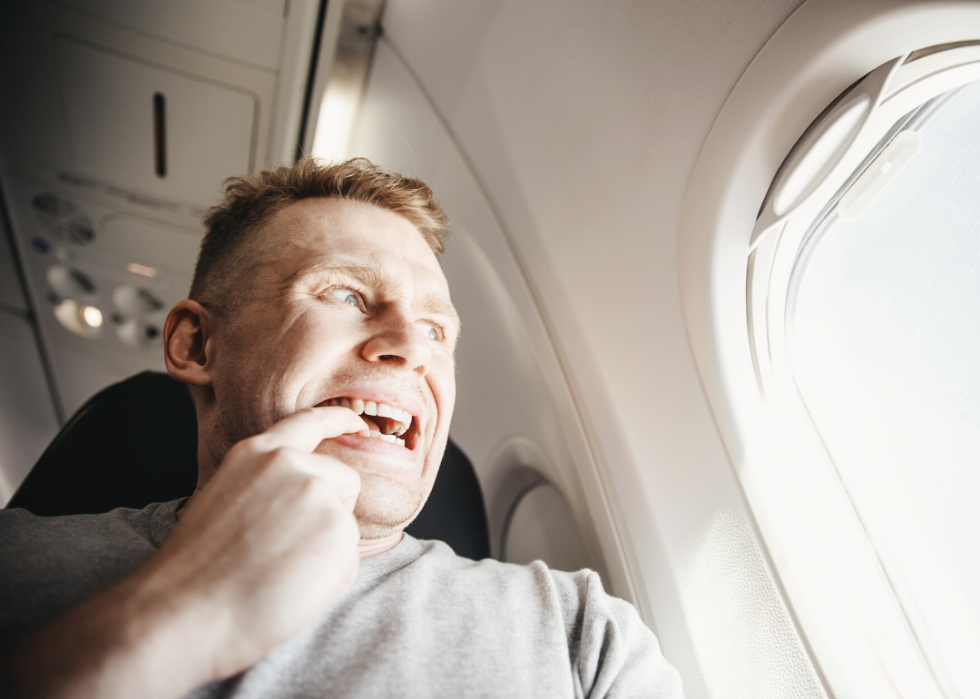
It can exacerbate a toothache
While not as common as sinus or ear pressure and pain, many frequent fliers experience dental pain. If you've already got a toothache, rethink that flight, or at least pack a pain reliever to get you through it. is not as common as other air travel-related issues, but it is definitely a possibility.
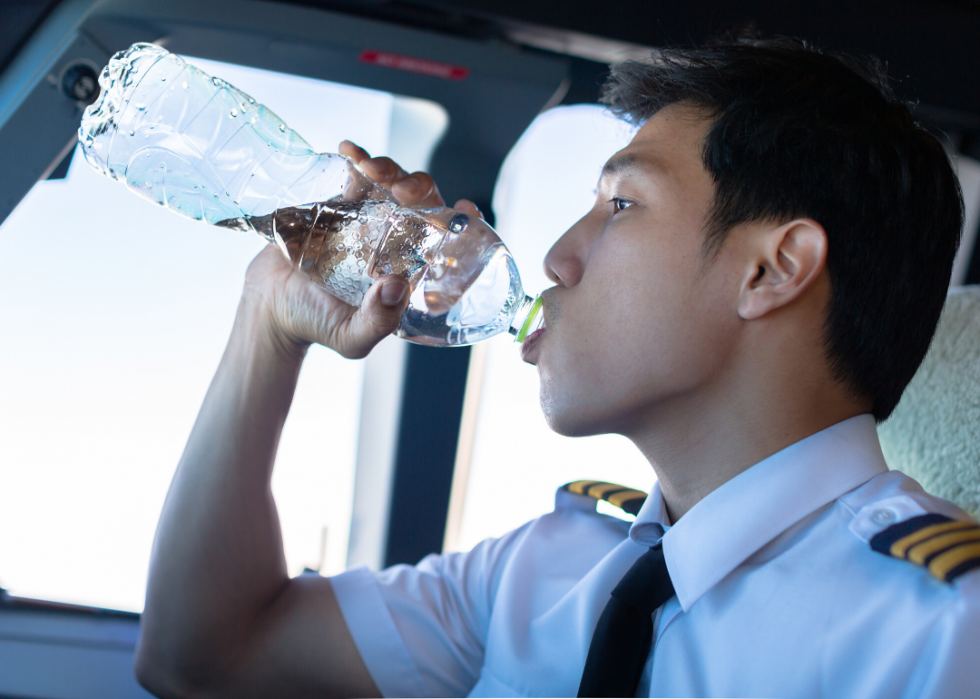
It will wither your skin
Have you ever seen a fellow passenger break out a face mask, hydration spray, and lotion before a flight? No, they aren't high-maintenance. They've just done their homework.
Air travel is not only dehydrating inside your body, but incredibly draining for the skin, as well. In fact, air travel can dry our skin by . How do you counteract it? Drink water, of course. And maybe take a page or two out of the books of your spa-savvy fellow passengers.
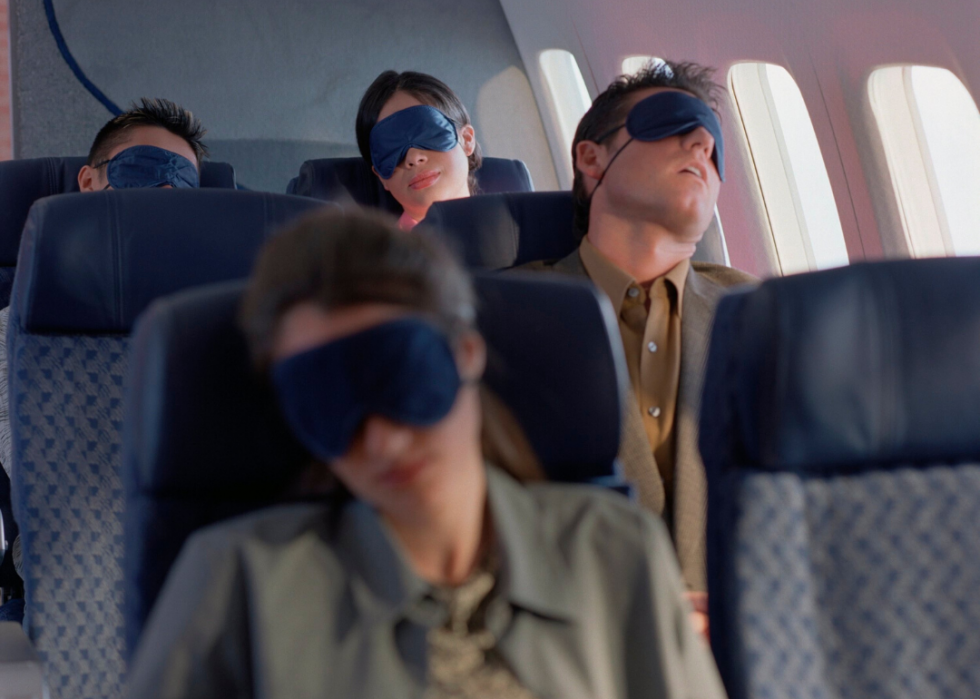
It throws off your circadian rhythm
Jet lag isn't just a term we throw around to describe travel fatigue. It's a very , which is our internal clock set to our current time zone and which tells us when we're sleepy, awake, hungry, etc. When we travel long distances over a short period, our bodies don't have ample time to adjust.
The more time zones you cross, the more likely you are to experience jet lag, which can cause a sick feeling, exhaustion, stomach problems, and more. You can reduce the effects of jet lag by getting plenty of sleep before your trip, giving yourself an extra day to adjust, and gradually adjusting your schedule before you leave.
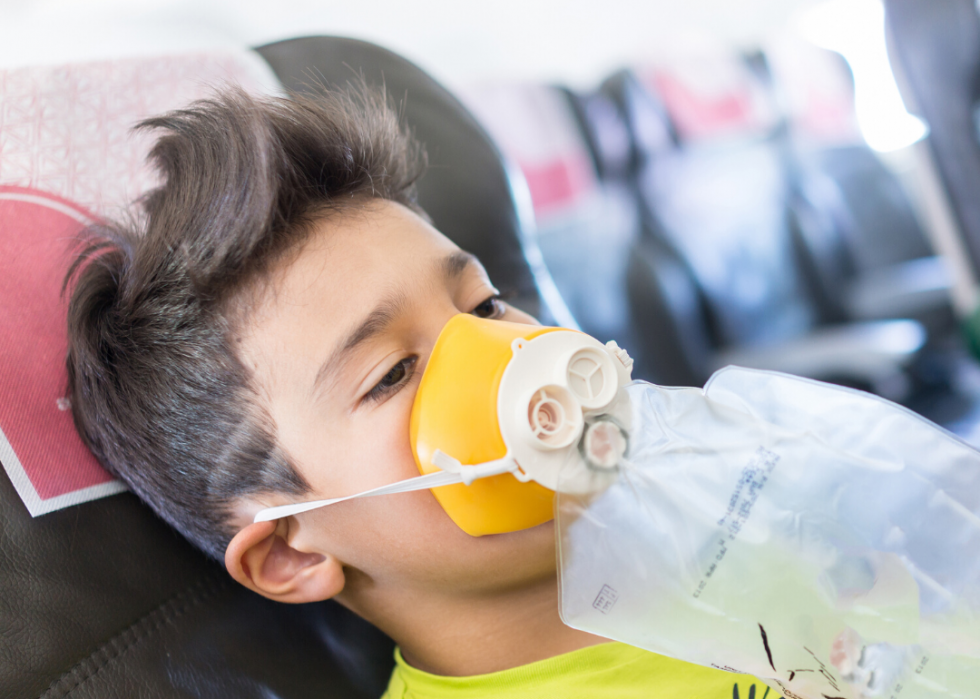
It can worsen pre-existing conditions
For the most part, healthy travellers will be able to overcome the negative effects of flying. You may feel discomfort here and there, but on the whole you'll step off the plane feeling happy to have arrived at your destination.
For travellers with pre-existing medical conditions, however, the . Those with cardiopulmonary disease, cerebrovascular disease, anemia, or sickle cell disease can feel their symptoms worsen when flying. The aircraft cabin is dry, with 10–20% humidity, which can seriously dry you out. Experts recommend travellers with underlying conditions or chronic medical issues ask their doctors about their issues before travel.
